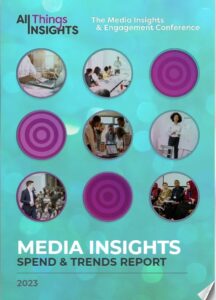Let’s debunk five prevalent misconceptions surrounding DEI in this context.
- DEI is a zero-sum game: Some perceive DEI efforts as a zero-sum game, fearing that prioritizing diversity may come at the expense of others or that the inclusion of new people, especially in leadership, leads to the exclusion or expulsion of those who are already there. However, this perspective fails to recognize the broader benefits of DEI and the ways in which it can positively impact both individuals and organizations. Everyone has an important role to play in driving cultural change. DEI is not about exclusion but rather about creating a culture where everyone can thrive.
- DEI lowers standards: Another misconception suggests that DEI initiatives lower standards. On the contrary, embracing diversity enriches talent pools and enhances organizational performance. It’s about creating an inclusive environment where all individuals can contribute their unique perspectives and talents. Reviewing processes to assess whether they might unintentionally disadvantage certain individuals or groups is essential to ensure everyone is able to perform to the best of their abilities and create an equal playing field. By ensuring equal opportunities for everyone, organizations can unlock the full potential of their workforce.
- DEI just “happens”: Some mistakenly believe that diversity naturally occurs without intentional efforts and that DEI is a quick fix or one-time initiative rather than an ongoing commitment. However, this misconception often leads to tokenistic efforts that fail to effect real change. Achieving meaningful diversity and inclusion requires proactive measures, investment, commitment from the leadership team and deliberate actions. From recruitment and hiring practices to leadership development and organizational policies, DEI should be embedded in every aspect of the business to drive meaningful and lasting impact. Without intentional strategies to attract, retain, and promote diverse talent, organizations risk perpetuating existing biases and inequalities.
- DEI is a problem to solve, not an opportunity: Contrary to popular belief, DEI is not an insurmountable challenge rather than an opportunity. While fostering diversity and inclusion comes with complexities, it presents significant opportunities for growth and innovation. Organizations that embrace DEI gain a competitive edge by understanding diverse consumer needs and preferences. This is particularly important in market research and insights where diverse teams are better equipped to uncover nuanced insights and anticipate emerging trends, leading to more robust strategies and solutions. Diverse perspectives fuel creativity, innovation, improve decision-making and financial returns.
- DEI Is exclusively HR’s responsibility: Lastly, there’s a misconception that Diversity and Inclusion initiatives fall solely within HR’s domain. While HR plays a critical role, DEI must be a shared responsibility requiring commitment from leadership at all levels. From the C-suite to frontline managers, everyone has a role to play in championing inclusivity and driving cultural change. In market research and insights organizations. Leaders must prioritize DEI as a strategic imperative, integrating it into business goals and decision-making processes.
Harnessing the Power of Diversity
Dispelling these misconceptions is essential for fostering a truly inclusive environment in the market research and insights industry. By addressing these myths head-on and recognizing DEI as integral components of business strategy, executives can harness the power of diversity to drive innovation, enhance consumer understanding, and achieve sustainable growth. Embracing diversity isn’t just the right thing to do—it’s also the smart choice for long-term success.
Contributor
-

Lucile Kamar is a forward-thinking and award-winning diversity & inclusion leader, keynote speaker and leadership coach, with over a decade of experience leading diversity and inclusion in male-dominated industries. Since 2021, she’s also been a guest lecturer in International Business Ethics at the Institut Francais de la Mode in Paris, France. She has a French and North African background, and was the first person in her family to attend university. A change-maker, Lucile’s passion lies in creating safe and inclusive spaces for impactful conversations to explore the complexities of intersectional identities, the psychology of inclusion and behaviors that promote authenticity and belonging. She is committed to guiding her clients on a transformative journey towards realizing their full potential.
View all posts






































































































